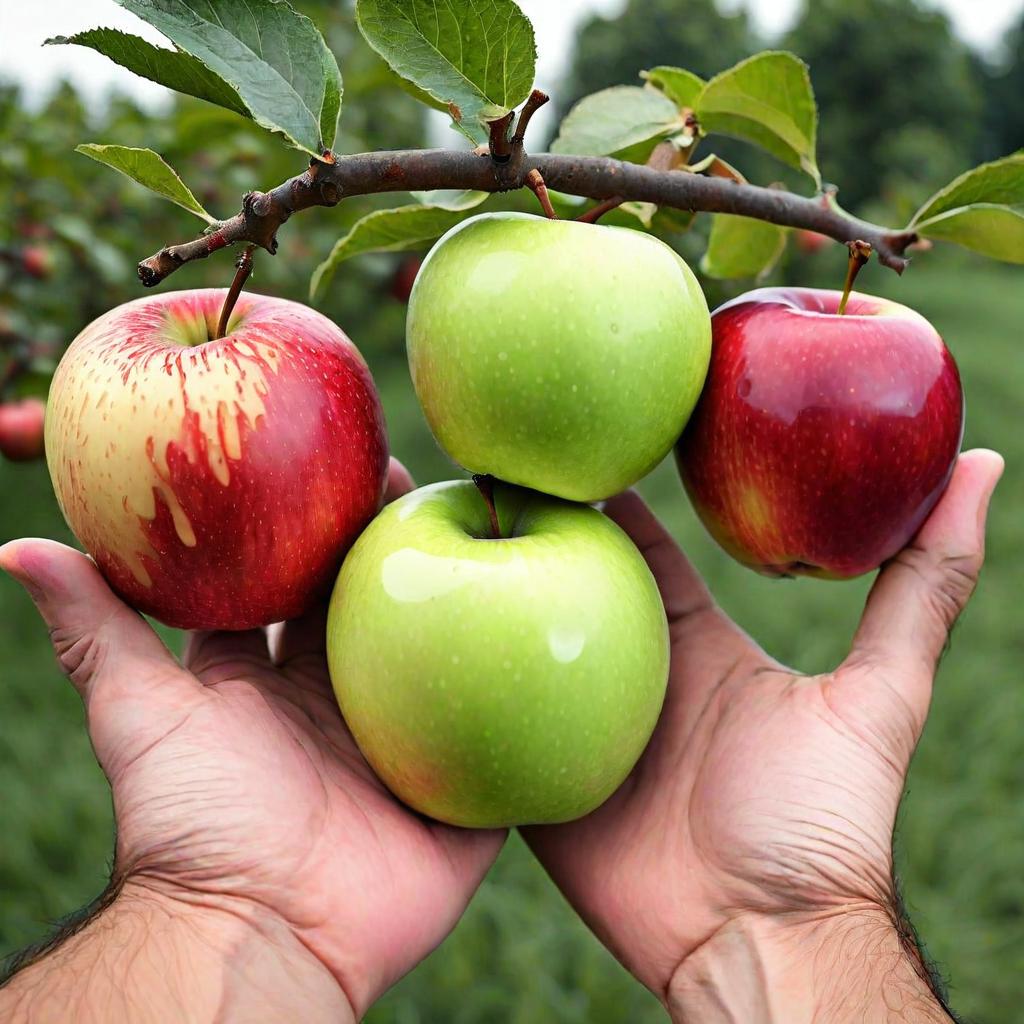If you are searching for benefits of apple fruit, then this post will satisfy your need. Discover the health benefits of apples, a nutritious fruit rich in fiber and antioxidants. Explore their varieties, nutritional profile, and delicious ways to enjoy them.

Table of Contents
What is an apple fruit?
An apple fruit is a popular fruit produced by the apple tree (Malus domestica). It is round, typically with red, green, or yellow skin and sweet to tart flesh. Apples are rich in dietary fiber, vitamin C, and antioxidants. They are consumed fresh, cooked, or as part of various dishes and beverages.
Nutritional Profile:
Here’s a nutritional breakdown of apples (per 100 grams):
| Nutrients | Value |
| Calories | 52grams |
| Water | 86% |
| Protein | 0.3grams |
| Carbohydrates | 13.8grams |
| Sugar | 10.4 grams |
| Fiber | 2.4grams |
| Fat | 0.2grams |
Vitamins:
| Vitamins | Daily Value |
| Vitamin C | 14% |
| Vitamin K | 5% |
| Vitamin E | 1% |
| Vitamin B6 | 2% |
Minerals:
| Minerals | Daily Value |
| Potassium | 6% |
| Calcium | 1% |
| Magnesium | 1% |
Health Benefits Of Eating Apple Fruit:
Here are some health benefits of eating apple fruit:
1) Supports Heart Health:
Apple fruits are high in soluble fiber, particularly pectin, which helps lower cholesterol levels. Anti-oxidants in apples, such as quercetin, also contribute to cardiovascular health.
2) Enhances Digestive Health:
The dietary fiber in apple fruits promotes healthy digestion, helps prevent constipation, and supports a healthy gut microbiome.
3) Aids Weight Management:
Apple fruits are low in calories but high in fiber and water,which can help you feel full longer and support weight loss efforts.
4) Regulates Blood Sugar Levels:
Apples have a low glycemic index and are rich in fiber, which helps regulate blood sugar levels and may reduce the risk of type 2 diabetes.
5) Provides Anti-oxidant Protection:
Apples are rich in anti-oxidants like flavonoids and polyphenols, which help reduce inflammation and protect cells from oxidative stress.
6) Supports Brain Health:
Certain compounds in apples, such as quercetin, may help protect brain cells from damage and reduce the risk of neurodegenerative diseases.
7) Boosts Immune System:
The vitamin C in apples supports immune function, helping to fight against infections and maintain overall health.
8) May Reduce Cancer Risk:
Apples contain various anti-oxidants and phytochemicals that may help lower the risk of certain cancers by reducing oxidative stress and inflammation.
These are some benefits of eating apple and adding apples in your diet and contribute to overall health.
Risk And Considerations:
Here are some risks and considerations associated with eating apples:
1) Allergies:
Some people may experience oral allergy syndrome, which can cause itching or swelling in the mouth and throat.
2) Pesticide Residue:
Apples often have pesticide residues. Washing thoroughly or choosing organic options can help reduce exposure.
3) Digestive Issues:
Eating too much apples can cause digestive discomfort due to their high fiber content, leading to bloating or gas.
4) Tooth Decay:
The natural sugars and acidity in apples can contribute to tooth enamel erosion. Rinse your mouth with water after eating.
5) High Sugar Content:
While natural, the sugars in apples can still affect blood sugar levels, especially in large quantities.
6) Interactions With Medications:
Apples may interact with certain medications like beta-blockers or statins. Consult a healthcare provider if you have concerns.
Enjoying apples in moderation and being mindful of these considerations can help maximize their benefits while minimizing risks.
Facts:
1) High In Fiber:
Apples are a good source of dietary fiber, which aids digestion and promotes heart health.
2) Rich In Anti-oxidants:
Apples contains anti-oxidants like quercetin and catchin that help reduce inflammation.
3) Variety Of Types:
There are over 7,500 apple varieties worldwide, each with unique flavors and textures.
4) Nutrient -Rich:
Apples provide essential nutrients such as vitamin C, potassium, and vitamin K.
5) Long Shelf Life:
Apples can be stored for a long time when kept in a cool, dry place.
Myths:
“An apple a day keeps doctor away”:
While apples are healthy, they cannot replace a balanced diet or medical care.
All apples are equally nutritious:
Nutrient levels can vary between different apple varieties.
Apple seeds are poisonous:
While apple contain amygdalin, a compound that can release cyanide, you’d need to consume a large quantity of seeds for it to be harmful.
Apples should always be peeled:
The peel contains many nutrients and anti-oxidants; eating it can enhance health benefits.
Apples cause weight gain:
Apples are low in calories and high in fiber, making them a great addition to a weight management plan.
Understanding these facts and myths can help you make informed choices about incorporating apples into your diet
FAQ’s:
1) What are the benefits of apple?
Apples are a good source of nutrients, including fiber, vitamin C, and antioxidants which can help support healthy digestion, brain health, and weight management. There is evidence that apples can also protect against certain chronic diseases, including cancer, heart disease, and type 2 diabetes.
2) Is it good to eat an apple a day?
After all, an apple a day is a healthier way. Apples may lower your chance of developing cancer, diabetes, and heart disease. Research says apples may also help you lose weight while improving your gut and brain health.